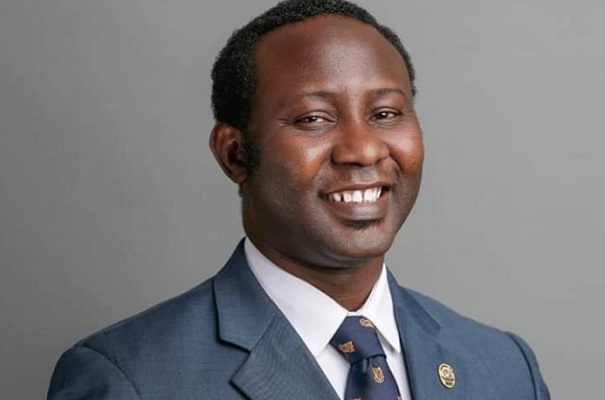I once read this fascinating story, whose source I cannot remember, about the late Sardauna of Sokoto and Premier of Northern Nigeria, Ahmadu Bello. By the way, there is a lot to learn from Bello and his colleague politicians of the First Republic, but that is a story for another day.
The Sardauna once planned to travel to Sokoto from Kaduna. The trip was for a Saturday, and his staff had prepared his motorcade. Before he stepped into his car, a civil servant came to ask if it was an official assignment. Bello answered in the negative. This was only a private visit to his people, he explained.
“Then you can’t travel in your official car,” the civil servant quipped.
The premier got the message and asked his driver to prepare his personal car for the journey, leaving the appurtenances of the office behind. They no longer make such public officers and civil servants in Nigeria. These days, public service provides an avenue for people to exploit their offices to personal advantage. They buy new property, degrees, travel the world, oppress the average person and marry new wives because they can.
Advertisement
3Late last week, the former Minister of Transportation, Rotimi Amaechi, gained a Bachelor of Laws degree from an Abuja-based private university.
Many Nigerians speculated that the former minister would have peddled his office toward achieving that goal. In a country where lecturers depend on their students to buy car tyres, clothes and sometimes feed their families for academic favours, having a minister in your classroom is like living in a gold mine. Even if Amaechi wasn’t paying, the average Nigerian’s rentier mentality encourages such speculations.
But Amaechi offered a riposte. He told VANGUARD in an interview over the weekend, “When I hear people say I bought a degree, I just laugh. I laugh because, until I started campaigning for the presidency, I never missed a class. So, for three years and six months, I never missed a class… The school gave me an award for being diligent and punctual…”
Advertisement
With this, the former minister tried to assure Nigerians that he worked for his degree. This would have been okay, except that it throws up two unacceptable things about Amaechi and Nigeria’s power elite.
One, in Nigeria, elected and appointed public office holders subjugate governance for their personal interests. And two, they disrespect Nigerians so much as to flaunt impunity in their faces.
This is not an Amaechi problem, to be clear. It is rampant among public office holders in Nigeria. They think they are doing the people a favour by talking down on them, even as they exploit national resources.
Concerning the former minister’s degree, he deserves the medal for his achievement. However, that was a personal ambition that adds nothing to Nigeria or his office as minister. Yet he spent most of the last four years, for which Nigerians paid him, serving his personal interests.
Advertisement
Amaechi himself said so in the referenced interview. Hear him, “… I would go to school as early as 8am and report to work by 6pm. I would work from 6pm to 11pm and sometimes 11:30pm, then go home. I did that on Mondays, Tuesdays, and Thursdays. Wednesdays were cabinet meetings. I worked Wednesdays and Fridays.”
So, a minister spends 10 hours, nine of which he should have spent serving Nigeria at school three days a week. He then goes to the office to work for five hours in the evening, when he is already exhausted from schoolwork. Out of five days, he spends three days in his own service and two in the service of the country that pays him. Do we need any long discussion about how much he short-changed Nigeria?
But that they can say these things to Nigerians is even more distasteful. In this disregard for the people’s sensibilities that impunity lies. How do you take advantage of people and boast to them about it? So, I wonder is it that these politicians do not realise the import of their actions, or do they not care?
Whatever it is, the mindlessness that attends governance in Nigeria takes so much toll on the country and its people that it should stop. The fact our leaders keep acting like they own the country and get away with it is why we have the current level of poverty, insecurity, and despondency.
Advertisement
Nigerians didn’t know that Amaechi spent this much time out of his seat as a minister when terrorists attacked a Kaduna-bound service of the Nigerian Railway Corporation on March 27. If the minister sat at his desk, he would have had more time to provide 360-degree leadership, and all the excuses he gave would have been unnecessary. This incident, in which people died and terrorists held others captive for months, is enough for ministers in other places to resign or get kicked out of office. But not Nigeria.
Amaechi not only dusted himself of emotions over this tragedy, trying to pass the buck, he soon embarked on a desire for Nigeria’s most important office; the presidency! He gallivanted across the country, speaking about why, unknown to us then, a man who misappropriates national resources (time) should become president.
Advertisement
This is all that most of those who seek public office here want. It is about personal aggrandisement and endless frolicking rather than compassion and deference to the sensibilities of the people.
The point about frolicking is where one should say that the trivialisation of governance is a pervasive malaise in the country. There are stories about governors who spend weeks away from the state they swore an oath to govern, some live in Abuja full-time and only visit their state, while some have made a tradition of travelling out of the country for meetings they could hold in their bedrooms. Most of the time, this is at the expense of the taxpayer, who is pressed down by the increased cost of living, an insecure country, and total contempt for his existence.
Advertisement
It is worse at the National Assembly with the scant numbers you see at plenary. With loads of absentee legislators who are a burden on national resources but neglect and sometimes commercialise their oversight function, it is little wonder that the country is adrift. Ministers, governors, legislators, and everyone else regards governance as a part-term venture when leaders in other parts of the world are growing grey hair from working round the clock to solve their people’s problems.
Yet, Nigeria did not always operate at this level of permissiveness. In our history, only people motivated by service had access to political office. This explains why businesspeople like Chiefs Alfred Rewane and Samuel Shonibare, who were frontline members of the Action Group, had no public offices. These days, governance has become business, a means to accumulate wealth and promote personal interests.
Advertisement
But Nigerians also need to stand up for themselves and curb the uninhibited arrogance, abuse, and insensitivity. Two weeks ago, the Minister of Education confessed to having wasted eight years of the country’s time achieving nothing, but that man is still in office! Nigerians must demand the exit of leaders who take them for granted or fail in their duties. It is the only way to return the country to good governance and sanity.
Twitter @niranadedokun
Views expressed by contributors are strictly personal and not of TheCable.
Add a comment







